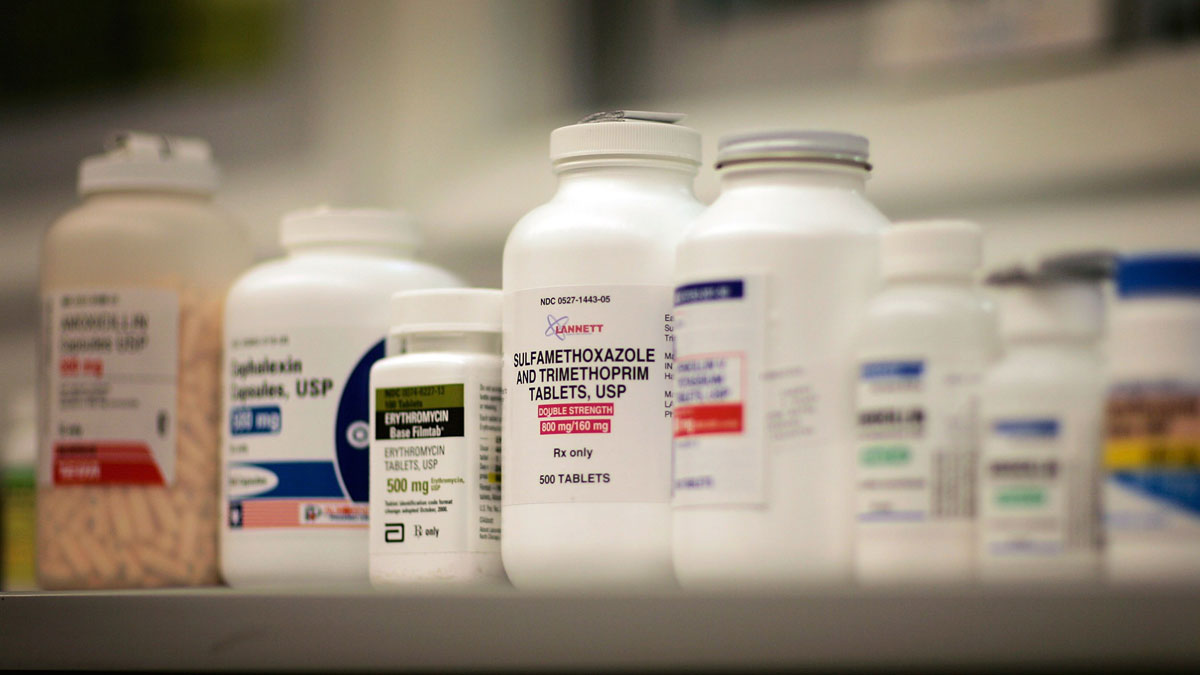Is it too late to prevent a global superbug crisis?
Expert warns that misuse of antibiotics means 50/50 chance current drugs could be lost

A free daily email with the biggest news stories of the day – and the best features from TheWeek.com
You are now subscribed
Your newsletter sign-up was successful
Failure to create new antibiotics to replace those becoming ineffective means that it is "almost too late" to prevent a disastrous global superbug, an expert in the field has warned.
Dr David Brown, director of Antibiotic Research UK, said that efforts to find alternative drugs before bacteria develop resistance to existing ones have "totally failed". "It is almost too late," Dr Brown told the Press Association. "We needed to start research 10 years ago and we still have no global monitoring system in place."
The evolution of drug-resistant bacteria is thought to be a result of the growing use of antibiotics for agricultural purposes, as well as the over-prescription of drugs for minor illnesses. A report published by the Independent Review on Antimicrobial Resistance earlier this month found that 72 percent of 139 academic studies showed a link between antibiotic consumption in livestock and human resistance to antibiotics.
The Week
Escape your echo chamber. Get the facts behind the news, plus analysis from multiple perspectives.

Sign up for The Week's Free Newsletters
From our morning news briefing to a weekly Good News Newsletter, get the best of The Week delivered directly to your inbox.
From our morning news briefing to a weekly Good News Newsletter, get the best of The Week delivered directly to your inbox.
The latest, and most alarming, development in antibiotic resistance has been the discovery of a gene that makes bacteria resistant to colistin, a drug used in some parts of the world – particularly China – to increase the size of livestock. Doctors turn to colistin, often called the last line of antibiotic defence, when other antibiotics prove ineffective, so the spread of a gene with an immunity to the drug would be catastrophic.
Experts have warned that immediate action is necessary to avert a superbug crisis that could see currently curable illnesses become untreatable. "I think we have got a 50-50 chance of salvaging the most important antibiotics, but we need to stop agriculture from ruining it again," said Dr Brown.
He added that market forces would need to unite with legislation to reduce the use of antibiotics in farming: "When the public start demanding meat that has not seen antibiotics – because they understand that the meat may contain antibiotic resistant bacteria – only then will real progress be made."
A free daily email with the biggest news stories of the day – and the best features from TheWeek.com
-
 ‘This is something that happens all too often’
‘This is something that happens all too often’Instant Opinion Opinion, comment and editorials of the day
-
 House votes to end Trump’s Canada tariffs
House votes to end Trump’s Canada tariffsSpeed Read Six Republicans joined with Democrats to repeal the president’s tariffs
-
 Bondi, Democrats clash over Epstein in hearing
Bondi, Democrats clash over Epstein in hearingSpeed Read Attorney General Pam Bondi ignored survivors of convicted sex offender Jeffrey Epstein and demanded that Democrats apologize to Trump
-
 Home Office worker accused of spiking mistress’s drink with abortion drug
Home Office worker accused of spiking mistress’s drink with abortion drugSpeed Read Darren Burke had failed to convince his girlfriend to terminate pregnancy
-
 In hock to Moscow: exploring Germany’s woeful energy policy
In hock to Moscow: exploring Germany’s woeful energy policySpeed Read Don’t expect Berlin to wean itself off Russian gas any time soon
-
 Were Covid restrictions dropped too soon?
Were Covid restrictions dropped too soon?Speed Read ‘Living with Covid’ is already proving problematic – just look at the travel chaos this week
-
 Inclusive Britain: a new strategy for tackling racism in the UK
Inclusive Britain: a new strategy for tackling racism in the UKSpeed Read Government has revealed action plan setting out 74 steps that ministers will take
-
 Sandy Hook families vs. Remington: a small victory over the gunmakers
Sandy Hook families vs. Remington: a small victory over the gunmakersSpeed Read Last week the families settled a lawsuit for $73m against the manufacturer
-
 Farmers vs. walkers: the battle over ‘Britain’s green and pleasant land’
Farmers vs. walkers: the battle over ‘Britain’s green and pleasant land’Speed Read Updated Countryside Code tells farmers: ‘be nice, say hello, share the space’
-
 Motherhood: why are we putting it off?
Motherhood: why are we putting it off?Speed Read Stats show around 50% of women in England and Wales now don’t have children by 30
-
 Anti-Semitism in America: a case of double standards?
Anti-Semitism in America: a case of double standards?Speed Read Officials were strikingly reluctant to link Texas synagogue attack to anti-Semitism